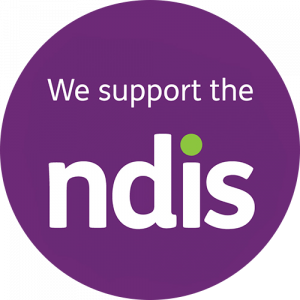

Occupational therapists are allied health professionals who assess and assist people living with disability, injury or illness which may impact their ability to complete activities of daily living. Daily living activities encompass all the tasks we do in everyday life, including self-care, household tasks, community access, education and work, recreation, and leisure.
We evaluate a range of domains including mobility, energy and endurance, cognition, mental health, communication, and social interaction. Occupational therapy can help people of all ages with physical, neurological, cognitive, and psychological conditions.
An assessment of a participant’s functional capacity to perform daily living tasks including mobility, strength, movement, cognition, sensory processing, visual perception, and mental health, and a report outlining the recommendations.
Ongoing therapy to build functional skills in a range of daily living tasks including self-care, coordination, and community engagement.
An assessment of a participant’s environment to recommend and prescribe suitable assistive technology, e.g. wheelchairs, hearing and vision technologies, ramps and hoists, and a report outlining the recommendations.
Assessments to determine a participant’s capacity to perform daily living tasks and suitable supports and funding for SIL, SDA and ILO, and a report outlining the recommendations.
An assessment of a participant’s home environment to recommend suitable modifications to improve independence and safe living, and a report outlining the recommendations.
An assessment of a participant’s home environment to recommend suitable modifications to improve independence and safe living, and a report outlining the recommendations.
An assessment of manual handling practices and training of support networks to ensure safe practices with a participant’s mobility and postural support needs, and a report outlining the recommendations.
An assessment of a participant’s sensory-related concerns with recommendations of strategies to meet their goals, and a report outlining the recommendations.
A Recommendation Letter that provides the NDIA with supporting evidence that additional support or equipment is required within a participant’s NDIS funding.
Physiotherapists work with a range of conditions including musculoskeletal (e.g. fractures, arthritis, chronic pain), cardiorespiratory (e.g. asthma, cystic fibrosis, COPD), neurological (e.g. cerebral palsy, stroke, epilepsy) and mental health conditions such as autism spectrum disorder, anxiety and depression, intellectual disabilities and ADHD.
Please bring any relevant medical information that may help your physiotherapist in the assessment and treatment of your condition, including any x-rays, MRIs and medical reports. Please also wear comfortable clothing and bring your everyday shoes, your sport shoes and your orthotics/splints/braces if you have them.
We are able to provide services at home, in schools, the workplace, in our offices, at supported accommodation centres and via Telehealth.
NDIS provider: 4050000976
Phone: 1800 000 677
